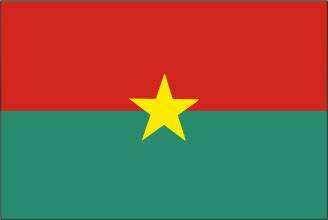Here are some key points about Burkina Faso:
History: Burkina Faso gained independence from French colonial rule in 1960. It has experienced periods of political instability and military coups since then.
Culture: Burkina Faso is known for its diverse ethnic groups, each with its own languages and traditions. Traditional music, dance, and art play a significant role in the cultural identity of the country.
Economy: Burkina Faso's economy is primarily based on agriculture, with cotton being a major cash crop. The country also has gold and other mineral resources, which contribute to its export revenue. However, Burkina Faso faces economic challenges and has a high poverty rate.
Languages: The official language is French, and there are several indigenous languages spoken across the country.
Religion: Islam is the most widely practiced religion in Burkina Faso, followed by traditional African religions and Christianity.
Geography: Burkina Faso is characterized by a Sahelian climate, with a mix of savannas, grasslands, and semi-arid regions. The country is vulnerable to droughts and desertification.
Wildlife and Conservation: Burkina Faso is home to a variety of wildlife, including elephants, lions, and various antelope species. Efforts are being made to protect and preserve its natural resources.
Challenges: Burkina Faso faces challenges such as poverty, limited access to healthcare and education, political instability, and security concerns due to the presence of extremist groups in the region.
Government: Burkina Faso is a semi-presidential republic, with an elected president as the head of state and a prime minister as the head of government.
Tourism: Despite its challenges, Burkina Faso offers attractions for tourists interested in its culture, traditional festivals, and natural beauty, including national parks and wildlife reserves.

